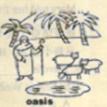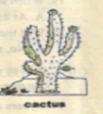
題目列表(包括答案和解析)
| 【小題1】 |
|
| 【小題2】 |
|
| 【小題3】 |
|
| 【小題4】 |
|
| 【小題5】 |
|
| 【小題6】 |
|
| 【小題7】 |
|
| 【小題8】 |
|
| 【小題9】 |
|
| 【小題10】 |
|
| 【小題1】 |
|
| 【小題2】 |
|
| 【小題3】 |
|
| 【小題4】 |
|
| 【小題5】 |
|
| 【小題6】 |
|
| 【小題7】 |
|
| 【小題8】 |
|
| 【小題9】 |
|
| 【小題10】 |
|
| 【小題11】 |
|
| 【小題12】 |
|
| 【小題13】 |
|
| 【小題14】 |
|
| 【小題15】 |
|
| A.It doesn’t tell the truth. | B.It is quite true. |
| C.It is impossible. | D.I don’t think it’s right. |
| A.They play computer games. | B.They watch videos late. |
| C.They have to do a lot of housework. | D.They have to do a lot of homework. |
| A.At 7:30 am. | B.At 6:00 am. | C.At 9:00 am. | D.At about 7:00 am. |
| A.The writer usually stays up past 1:30 am. |
| B.The writer usually goes to bed around midnight. |
| C.The writer usually does a survey. |
| D.Many American students don’t get enough sleep, so they can have high grades. |
| A.Something has to be done to solve the problem of students’ lack of sleep. |
| B.Many American high school students are sleepy in class. |
| C.Many kids have too much homework to do. |
| D.Students can’t play computer games. |






| A.it is sandy | B.there is so little rain |
| C.the wind is strong | D.there is no water deep under the ground |
| A.圍堵 | B.討好 | C.釋放 | D.吸收 |
| A.the sunlight is too strong in the day | B.they need to see and hear well at night |
| C.it is very cold at nigh | D.they store water in them. |
| A.storing water in side their bodies | B.drinking water as much as they can |
| C.staying underground | D.growing lots of plants |
| A.Desert people like to live in the desert though life is hard. |
| B.People in the desert usually fry eggs on the ground. |
| C.Camels have special fur to store water. |
| D.All the deserts are covered in sand. |

| A.In Japan. | B.In Sweden. | C.In England. | D.In Korea. |
| A.Because of the culture. | B.Because of her looks. |
| C.Because of the food. | D.Because of the language. |
| A.except | B.a(chǎn)s for | C.a(chǎn)s well as | D.besides |
| A.Ida hadn't seen her birthparents for at least 22 years. |
| B.Ida found it easy for her to get used to living in Korea. |
| C.Ida still couldn't accept who she was after she went back to Sweden. |
| D.Ida realized she can't live a happy life either in Sweden or in Korea. |
百度致信 - 練習(xí)冊(cè)列表 - 試題列表
湖北省互聯(lián)網(wǎng)違法和不良信息舉報(bào)平臺(tái) | 網(wǎng)上有害信息舉報(bào)專(zhuān)區(qū) | 電信詐騙舉報(bào)專(zhuān)區(qū) | 涉歷史虛無(wú)主義有害信息舉報(bào)專(zhuān)區(qū) | 涉企侵權(quán)舉報(bào)專(zhuān)區(qū)
違法和不良信息舉報(bào)電話:027-86699610 舉報(bào)郵箱:58377363@163.com